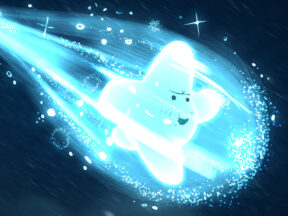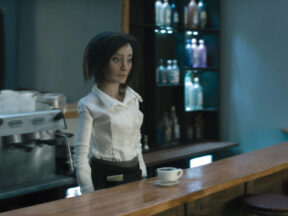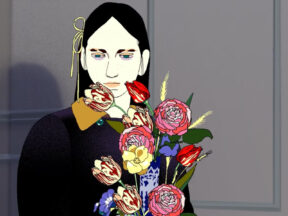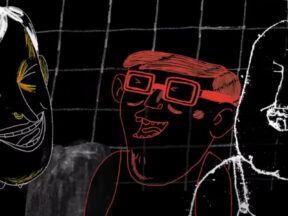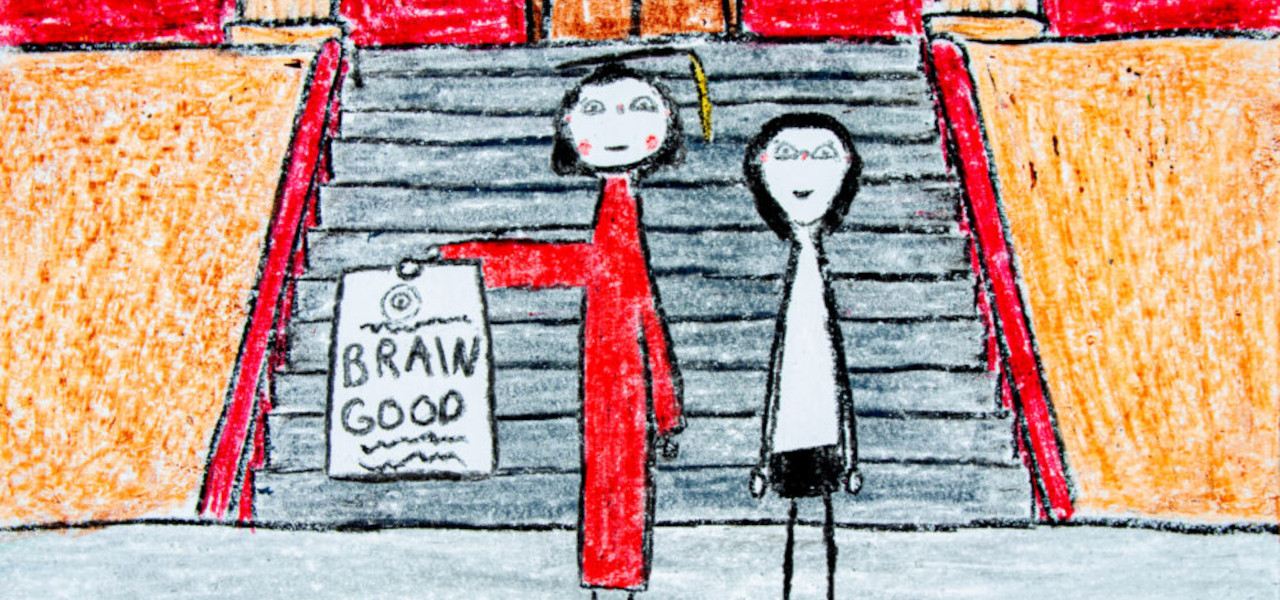
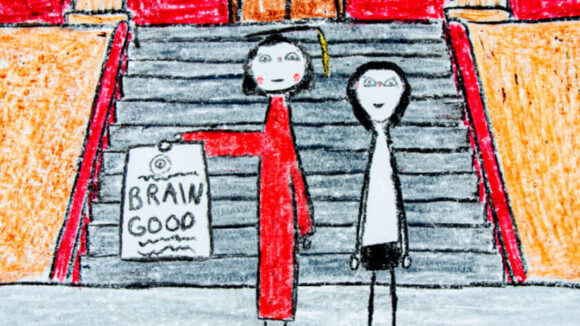
2024 Oscars Short Film Contenders: ‘Rosemary A.D. (After Dad)’ Director Ethan Barrett
Welcome to Cartoon Brew’s series of spotlights focusing on the animated shorts that have qualified for the 2024 Oscars. There are several ways a film can earn eligibility. With these profiles, we’ll be focusing on films that have done so by winning an Oscar-qualifying award at an Oscar-qualifying festival.
Today’s film is Rosemary A.D. (After Dad) from Austin, Texas-based director Ethan Barrett. The film earned its qualification at the Austin Film Festival, also scoring prizes at the Atlanta Film Festival, Cairo International Film Festival, Cleveland International Film Festival, St. Louis International Film Festival, and Indy Shorts, among others.
Rosemary A.D. is a touching story about a father confronting the terrifying realities of parenting and struggling to know what’s best for his daughter. In the film, Barrett asks heartbreaking questions about his role in his daughter’s life and whether his being a part of it is in the girl’s best interest. The film’s hand-drawn crayon animation makes it feel more intimate as we see and hear a filmmaker share all their best and worst thoughts about life and parenting.
Cartoon Brew: In the film, you express many ideas that I think most people have had (or something similar) but suppress or are ashamed of. Did you struggle to share those thoughts? And was there a personal benefit for you in doing so?
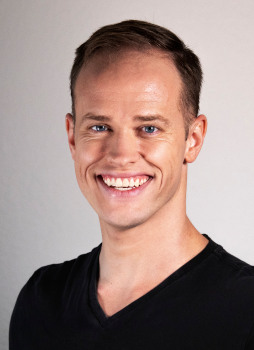
Ethan Barrett: I’ve always tried to be open about my own mental health struggles, but that changed when my daughter Rosemary was born. Suddenly, it seemed like a taboo. I couldn’t help thinking—would she be better off without me? I was ashamed of these thoughts and didn’t tell anybody. I thought I was alone in feeling this way. So naturally, I made a cartoon about it with crayons.
Animation is an arduous and isolating process; I don’t really recommend it for people seeking therapy. But in the end, it was worth it. After seeing the film, people from all over the world have told me about their struggles as a parent or as the child of a suicidal parent. Realizing that others experience the same journey has made me feel more connected to the world, and I hope the film opens conversations about our mental health.
What was it about this story or concept that connected with you and compelled you to direct the film?
I really wanted to make a film about my mental health, but I couldn’t figure out a way that didn’t seem like a self-serving cry for help. After Rosemary was born, I was struggling with suicidal thoughts and started journaling realistic ways her life could go after I was gone. I wanted to believe she’d be happier without me, but I knew it could go very badly as well. Saddest to me, though, was the idea that she could live a whole life where she never once thought of me.
Soon I realized that this would make an interesting movie, and since I was going to be at home changing diapers and doing bottle feedings, I thought, why not? I would make one last film and move on with my life. This freed me to be completely vulnerable and make the exact kind of goofy film I wanted to see.
What did you learn through the experience of making this film, either production-wise, filmmaking-wise, creatively, or about the subject matter?
In opening up, I realized every person is unique and that creativity is discovering who you are and honing in on that person. Having done all the animation, voices, sound, and music myself (with help from producer Tiffany Barrett), this film is really just my brain splattered on the screen. Yet somehow, that vulnerability makes the story more relatable. Also, honest feedback is crucial to filmmaking, and without it, the film would not be what it is.
The ending changed during the process of making this film. What started as a film about my own emotions evolved as I got to know Rosemary during the first few months of her life. Seeing the cheerful, feisty, opinionated person she was made me ditch the ambiguous ending I had planned and really think about what I wanted to say to her—that despite everything, I’m just lucky to be a part of her life.
Can you describe how you developed your visual approach to the film? Why did you settle on this style/technique?
As the world turns more to technological advancements, I wanted to go the other way, to make something completely by hand. I think I just wanted to see if I could do it. So I chose the most basic drawing tool of them all—the crayon. I knew I wasn’t going to blow the audience away with spectacle, so I stripped the film down to childish backgrounds and stick figures. I took out any scene or element I felt didn’t absolutely need to be there. I also quickly realized that no matter how beautiful I thought my pencil drawings were, the awkward, messy crayons made fine details impossible. So, I decided to leave the messiness there on the page. I think that reflects its hand-made quality well: people are messy. That’s what it’s all about.

